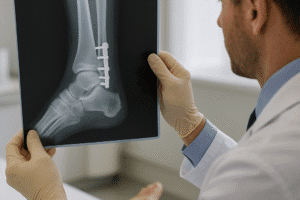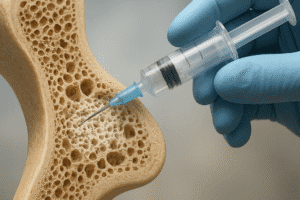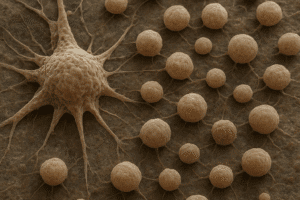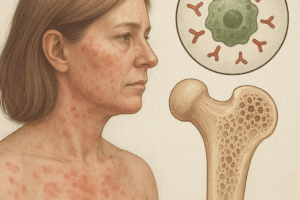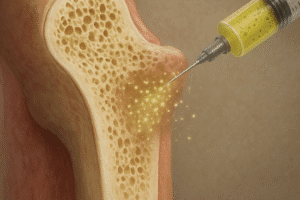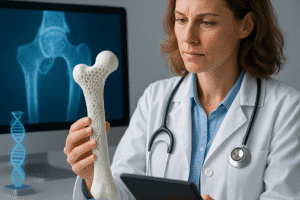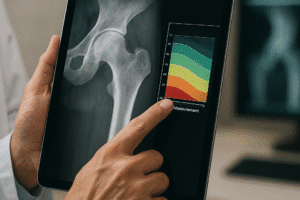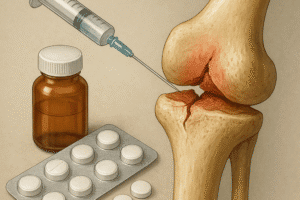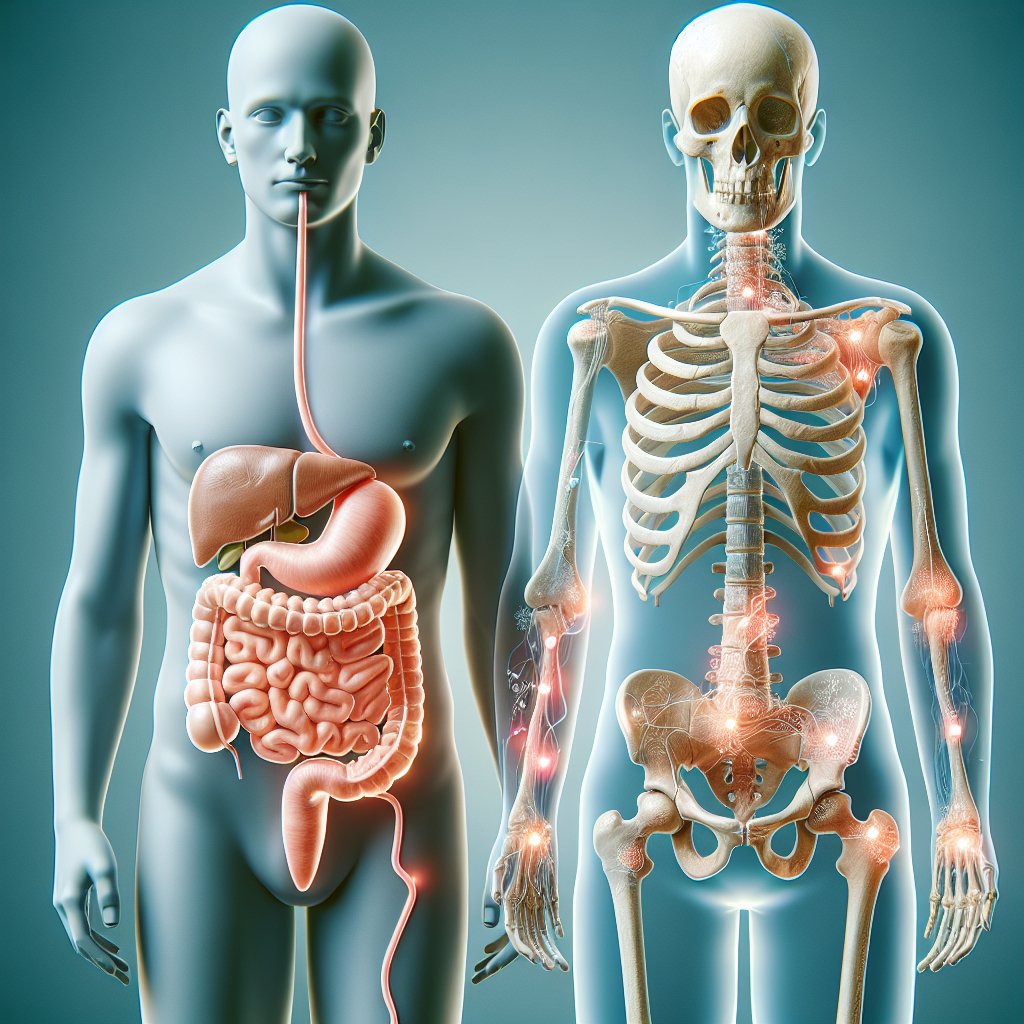The connection between gut health and bone density is an emerging area of research that highlights the intricate relationship between our digestive system and skeletal health. As scientists delve deeper into the microbiome—the vast community of microorganisms residing in our intestines—they are uncovering how these tiny organisms can influence not only our digestion but also our overall health, including the strength and density of our bones. This article will explore the mechanisms behind this connection, the implications for health and disease, and practical steps to improve gut health for better bone density.
Understanding Gut Health
Gut health refers to the balance and function of the microorganisms in the digestive tract, which play a crucial role in various bodily functions. A healthy gut microbiome is characterized by a diverse array of bacteria, fungi, and other microorganisms that work together to aid digestion, synthesize vitamins, and protect against pathogens. When this balance is disrupted, a condition known as dysbiosis can occur, leading to various health issues, including gastrointestinal disorders, obesity, and even autoimmune diseases.
The Role of the Microbiome
The gut microbiome is not just a passive participant in digestion; it actively communicates with the immune system and other organs, influencing inflammation and metabolic processes. Research has shown that certain gut bacteria can produce short-chain fatty acids (SCFAs) through the fermentation of dietary fibers. SCFAs, such as butyrate, have been linked to anti-inflammatory effects and improved gut barrier function, which can have downstream effects on bone health.
Gut Health and Nutrient Absorption
One of the primary functions of the gut is to absorb nutrients from the food we eat. A healthy gut microbiome enhances the absorption of essential vitamins and minerals, including calcium and vitamin D, both of which are critical for maintaining bone density. Calcium is a key component of bone tissue, while vitamin D is necessary for calcium absorption in the intestines. Dysbiosis can impair nutrient absorption, leading to deficiencies that may negatively impact bone health.
The Link Between Gut Health and Bone Density
Recent studies have begun to elucidate the connection between gut health and bone density, revealing that the microbiome may play a significant role in bone metabolism. This relationship is complex and involves various mechanisms, including the regulation of inflammation, hormone production, and nutrient absorption.
Inflammation and Bone Health
Chronic inflammation is a known risk factor for bone loss and osteoporosis. The gut microbiome can influence systemic inflammation through the production of pro-inflammatory cytokines. A healthy microbiome helps to regulate inflammation, while dysbiosis can lead to an overproduction of these inflammatory markers, which can, in turn, promote bone resorption—the process by which bone is broken down and its minerals released into the bloodstream. This imbalance can lead to decreased bone density and increased fracture risk.
Hormonal Regulation
The gut microbiome also plays a role in the regulation of hormones that are crucial for bone health. For instance, gut bacteria can influence the production of estrogen, a hormone that helps maintain bone density. In postmenopausal women, decreased estrogen levels can lead to increased bone resorption and a higher risk of osteoporosis. By supporting a healthy gut microbiome, it may be possible to promote better hormonal balance and, consequently, better bone health.
Nutrient Absorption and Bone Density
As mentioned earlier, the gut is responsible for absorbing vital nutrients necessary for bone health. A healthy gut microbiome enhances the bioavailability of calcium and vitamin D, ensuring that these nutrients are adequately absorbed. Studies have shown that individuals with a diverse and balanced gut microbiome tend to have higher levels of these essential nutrients, which correlates with better bone density. Conversely, individuals with dysbiosis may experience nutrient deficiencies that can compromise bone health.
Practical Steps to Improve Gut Health for Better Bone Density
Given the significant connection between gut health and bone density, it is essential to adopt lifestyle and dietary practices that promote a healthy microbiome. Here are some practical steps to consider:
1. Eat a Diverse Diet
A diverse diet rich in fruits, vegetables, whole grains, and fermented foods can help support a healthy gut microbiome. Foods high in fiber, such as legumes, nuts, and seeds, promote the growth of beneficial bacteria. Fermented foods like yogurt, kefir, sauerkraut, and kimchi introduce live probiotics that can enhance gut health.
2. Limit Processed Foods and Sugars
Processed foods and added sugars can negatively impact gut health by promoting the growth of harmful bacteria. Reducing the intake of these foods can help maintain a balanced microbiome and support overall health.
3. Stay Hydrated
Proper hydration is essential for maintaining gut health. Drinking enough water helps to support digestion and nutrient absorption, ensuring that the gut functions optimally.
4. Consider Probiotics and Prebiotics
Probiotics are live microorganisms that can provide health benefits when consumed in adequate amounts. Prebiotics, on the other hand, are non-digestible fibers that feed beneficial gut bacteria. Incorporating both probiotics and prebiotics into your diet can help support a healthy microbiome.
5. Regular Physical Activity
Engaging in regular physical activity has been shown to have positive effects on both gut health and bone density. Exercise can promote the growth of beneficial gut bacteria and improve bone strength through weight-bearing activities.
6. Manage Stress
Chronic stress can negatively impact gut health and contribute to dysbiosis. Practicing stress management techniques such as mindfulness, meditation, and yoga can help support a healthy gut microbiome.
Conclusion
The connection between gut health and bone density is a fascinating area of research that underscores the importance of maintaining a healthy microbiome for overall well-being. By understanding the mechanisms behind this relationship and taking proactive steps to improve gut health, individuals can potentially enhance their bone density and reduce the risk of osteoporosis and fractures. As research continues to evolve, it is clear that the gut microbiome plays a pivotal role in our health, and nurturing it may be one of the keys to maintaining strong and healthy bones throughout life.
